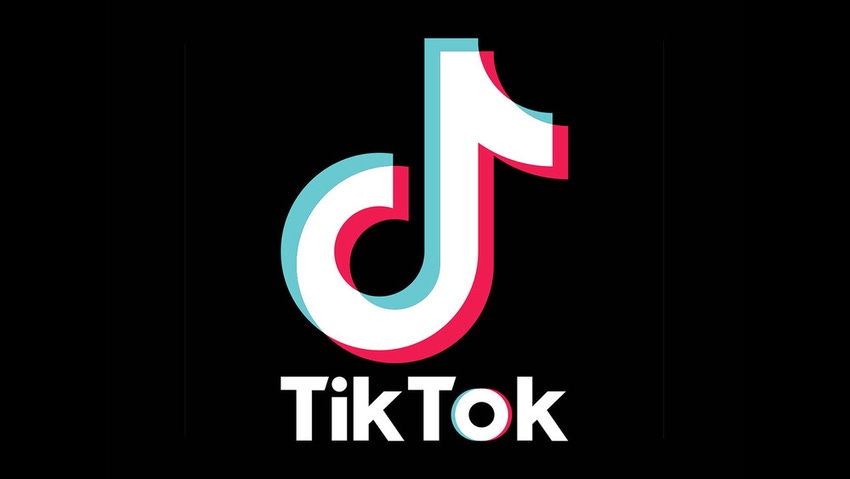A group of politicians in the US have put together a bill that would ban social media app TikTok, over fears its parent company ByteDance could make its data available to the Chinese Communist Party.
December 14, 2022

A group of politicians in the US have put together a bill that would ban social media app TikTok, over fears its parent company ByteDance could make its data available to the Chinese Communist Party.
Senator Marco Rubio introduced the bipartisan legislation to ban TikTok from operating in the US, called ‘Averting the National Threat of Internet Surveillance, Oppressive Censorship and Influence, and Algorithmic Learning by the Chinese Communist Party Act’ – and whoever was in charge in naming it seems to have done summersaults in order to have the acronym read ‘ANTI-SOCIAL CCP.’
There has been a lot of bluster around the idea that TikTok and its parent company ByteDance represent a threat to national security from both US and UK politicians. It’s based on the idea that the data TikTok collects could be shared with the Chinese government at any time – which is basically the same argument that was made for kicking Huawei out.
If passed the bill would block and prohibit ‘all transactions from any social media company in, or under the influence of, China, Russia, and several other foreign countries of concern,’ though TikTok is specifically named.
This is just the latest move by the US establishment against the social media app. Back in June, three years after the US first expressed fears about TikTok, FCC Commissioner Brendan Carr wrote to Google and Apple, asking them to remove the TikTok app from their respective app stores. Citing fears that China-based employees of parent company ByteDance have accessed non-public data about US users, Carr concluded that ‘TikTok poses an unacceptable national security risk’.
“The federal government has yet to take a single meaningful action to protect American users from the threat of TikTok,” said Rubio. “This isn’t about creative videos — this is about an app that is collecting data on tens of millions of American children and adults every day. We know it’s used to manipulate feeds and influence elections. We know it answers to the People’s Republic of China. There is no more time to waste on meaningless negotiations with a CCP-puppet company. It is time to ban Beijing-controlled TikTok for good.”
Representative Gallagher added: “TikTok is digital fentanyl that’s addicting Americans, collecting troves of their data, and censoring their news. It’s also an increasingly powerful media company that’s owned by ByteDance, which ultimately reports to the Chinese Communist Party – America’s foremost adversary. Allowing the app to continue to operate in the U.S. would be like allowing the U.S.S.R. to buy up the New York Times, Washington Post, and major broadcast networks during the Cold War. No country with even a passing interest in its own security would allow this to happen, which is why it’s time to ban TikTok and any other CCP-controlled app before it’s too late.”
Say how you really feel, guys.
There is presumably a lot of difference between the information a kit vendor like Huawei could extract and share by having its kit plugged into telecoms cores around the world (however likely this was) and the information that could be collated by an app like TikTok, which distributes short videos in which people lip synch to music or otherwise embarrass themselves in various banal and baffling ways.
How much the algorithms on TikTok differ from YouTube or Instagram in their ability to curate feeds and keep people checking in is a worthwhile question, as is whether the label of ‘digital fentanyl that’s addicting Americans, collecting troves of their data, and censoring their news’ could be applied by US owned social media apps as well. But of course the underlying fear those looking to ban it point to is that the Chinese state could start meddling with it at anytime.
In the UK there have been similar noises. Members of Parliament sanctioned by China argued that the government in Beijing uses the social media app as spyware, the Financial Times reported.
Interestingly telecoms trade body and organiser of the GSMA doesn’t appear to feel the same way. It was announced last month that TikTok had joined the group as an industry member and said it intends to ‘work with our industry partners to advocate the development of new mobile communication technologies and form lasting business relationships in our global community.’
Whether or not there is any validity to the idea that military-industrial or otherwise vital secrets might be revealed by scouring the gigabytes of awkward chaff stored on TikTok’s servers, this can all be seen as part of the same political drive by the US to push back on China in various tech theatres, rightly or wrongly, resulting in some heralding the end of globalisation as we know it.
Get the latest news straight to your inbox. Register for the Telecoms.com newsletter here.
About the Author(s)
You May Also Like








.png?width=300&auto=webp&quality=80&disable=upscale)


_1.jpg?width=300&auto=webp&quality=80&disable=upscale)


.png?width=800&auto=webp&quality=80&disable=upscale)